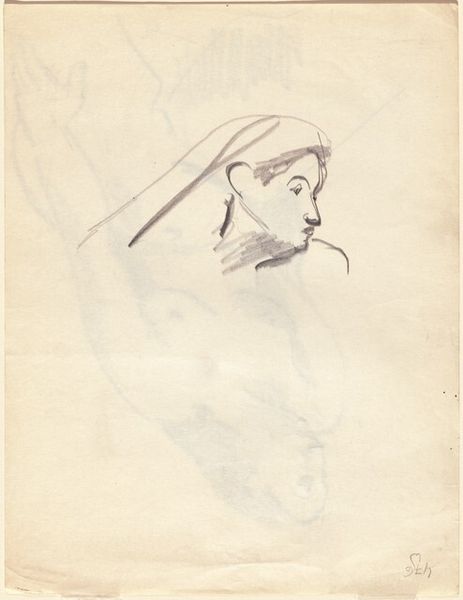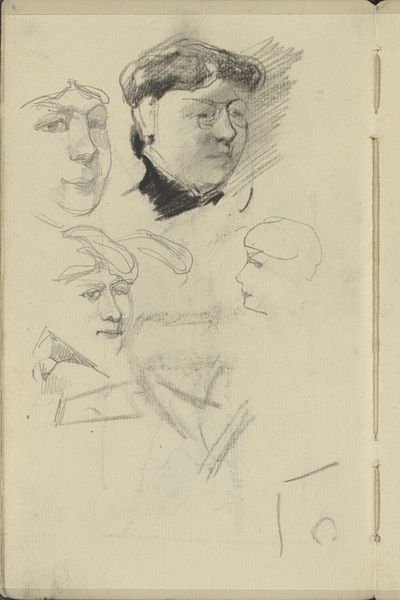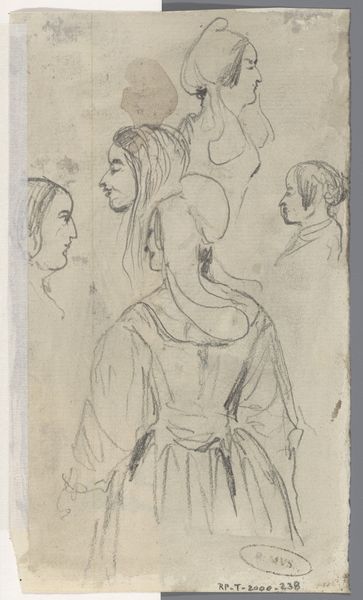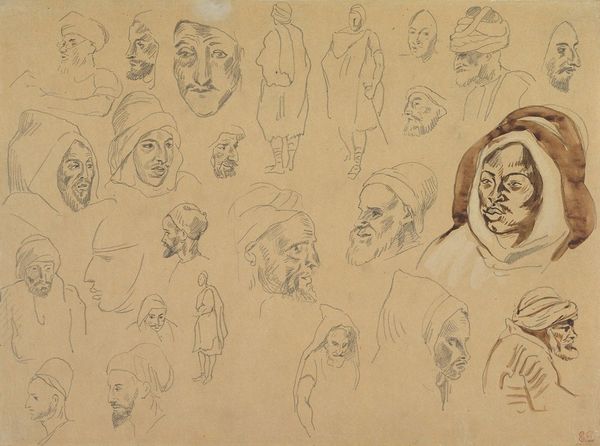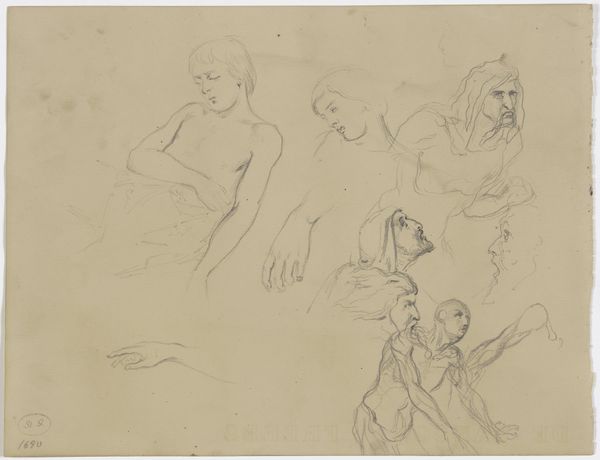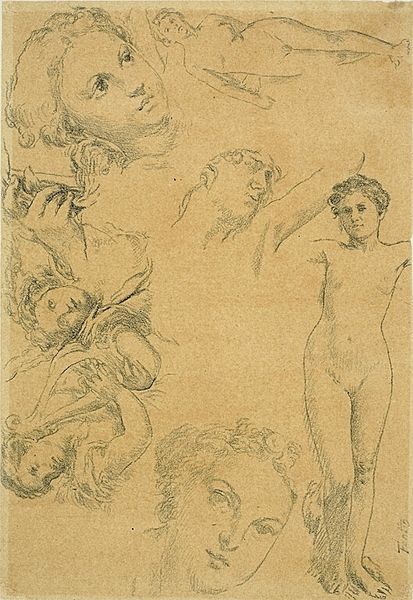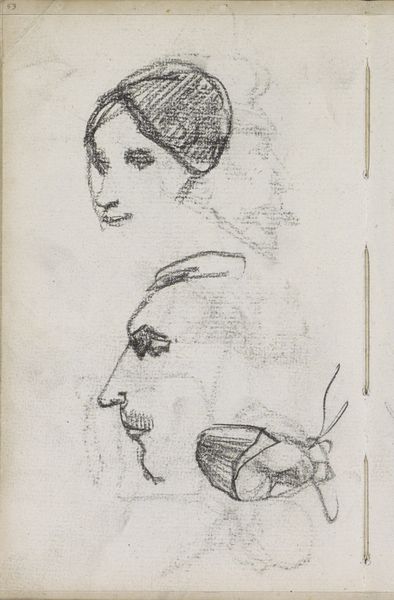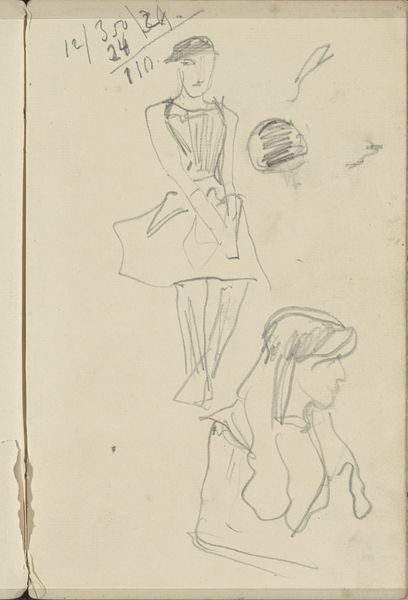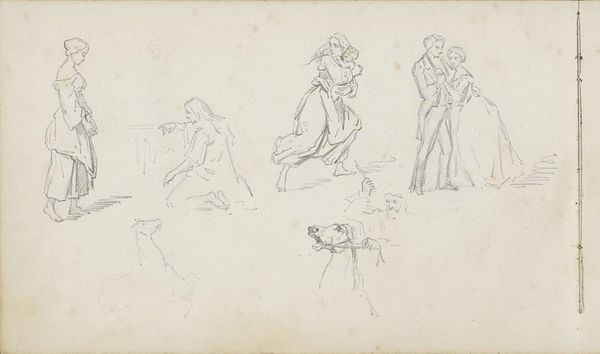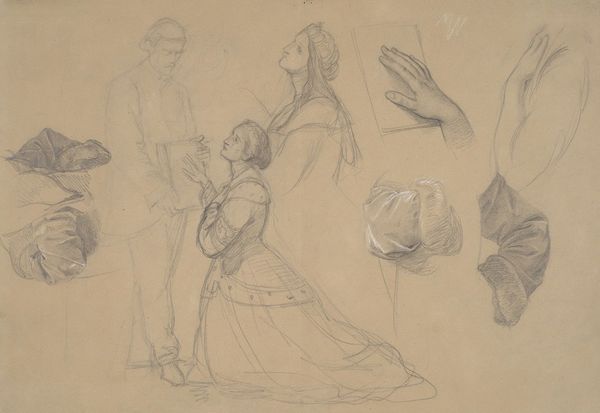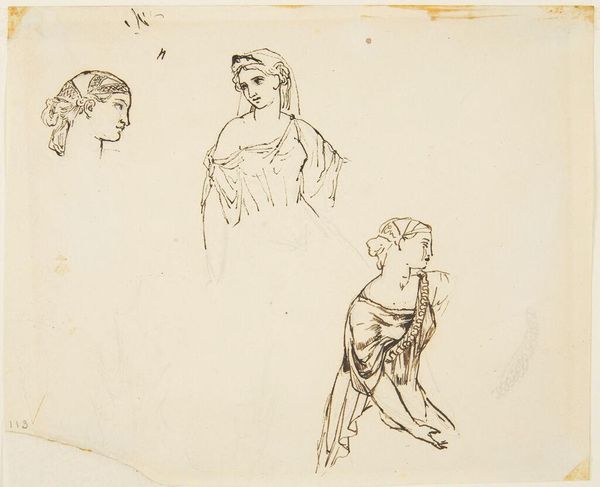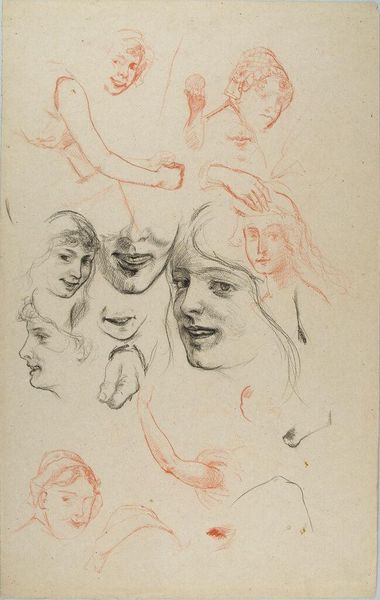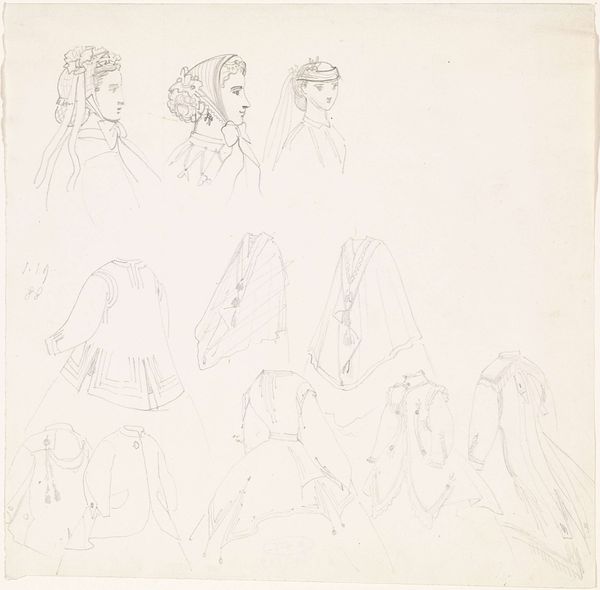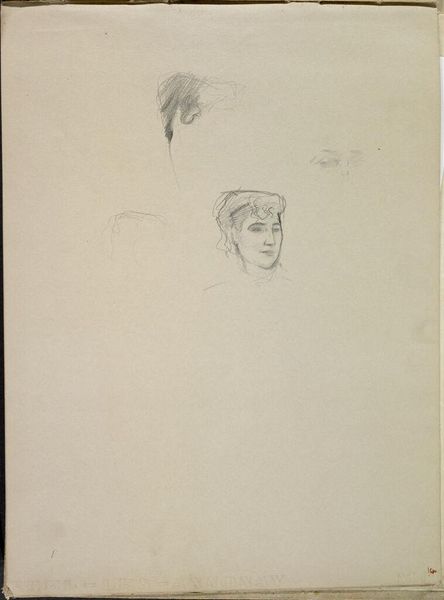
drawing, pencil
#
portrait
#
drawing
#
self-portrait
#
pencil drawing
#
romanticism
#
pencil
#
orientalism
#
academic-art
Copyright: Public Domain: Artvee
Curator: I’m immediately struck by the raw energy in this sheet of studies. It's like peering over Delacroix's shoulder as he's grappling with form and feeling in North Africa. Editor: Exactly. The work, entitled "Sheet of North African Pencil Studies", dates to around 1832, born from Delacroix's trip to Morocco. The orientalist influences of his travels are present here in the figures portrayed with their distinct North African garb. Curator: And what a whirlwind of impressions! Look at how each face seems caught in a fleeting moment, a whisper of a narrative hinted at. I find my eyes dancing across the page, wanting to know each one's story, who they are. I'm curious to know more about the gender dynamics implied, since we do not see women painted as often as men during this period. Editor: The "Orientalist" gaze often exoticized and, therefore, objectified non-European people, women especially, within European artistic and intellectual contexts. This practice, while providing a glimpse into other cultures, risks essentializing and misrepresenting those cultures. The clothing worn, particularly the head coverings and draping fabrics, speaks to both cultural and perhaps religious practices. Delacroix, while documenting what he saw, may have also perpetuated stereotypes and power imbalances inherent in the colonial project. Curator: Ah, food for thought. Although it's “just” a study, a practice sheet in pencil, the emotions evoked are substantial. There is so much energy, freedom in it, maybe I can allow myself to be forgiving for the period's vision! Editor: Well, yes, the pencil strokes carry so much expressiveness despite being preliminary work, a lot of his paintings from the period demonstrate a keen interest in "exotic" subjects that unfortunately contributed to the romanticizing of power dynamics. Curator: So even sketches can reflect larger power structures. But it also makes me think about the role of travel, of seeing new worlds. Delacroix needed this trip to unlock a part of himself. He needed to go see these people to paint them... Editor: Travel and the cross-cultural dialogues it provokes are fertile ground. But it’s vital to travel with humility, respect, and a willingness to learn beyond the surface, especially acknowledging the pre-existing socio-historical and colonial framework. It allows for true representation, but can perpetuate harm in representation too. Curator: An important lesson to take away, I guess, even now. Thank you, Delacroix, for showing us the potential of a journey, and for these many faces that tell a history both observed and implicated.
Comments
No comments
Be the first to comment and join the conversation on the ultimate creative platform.
